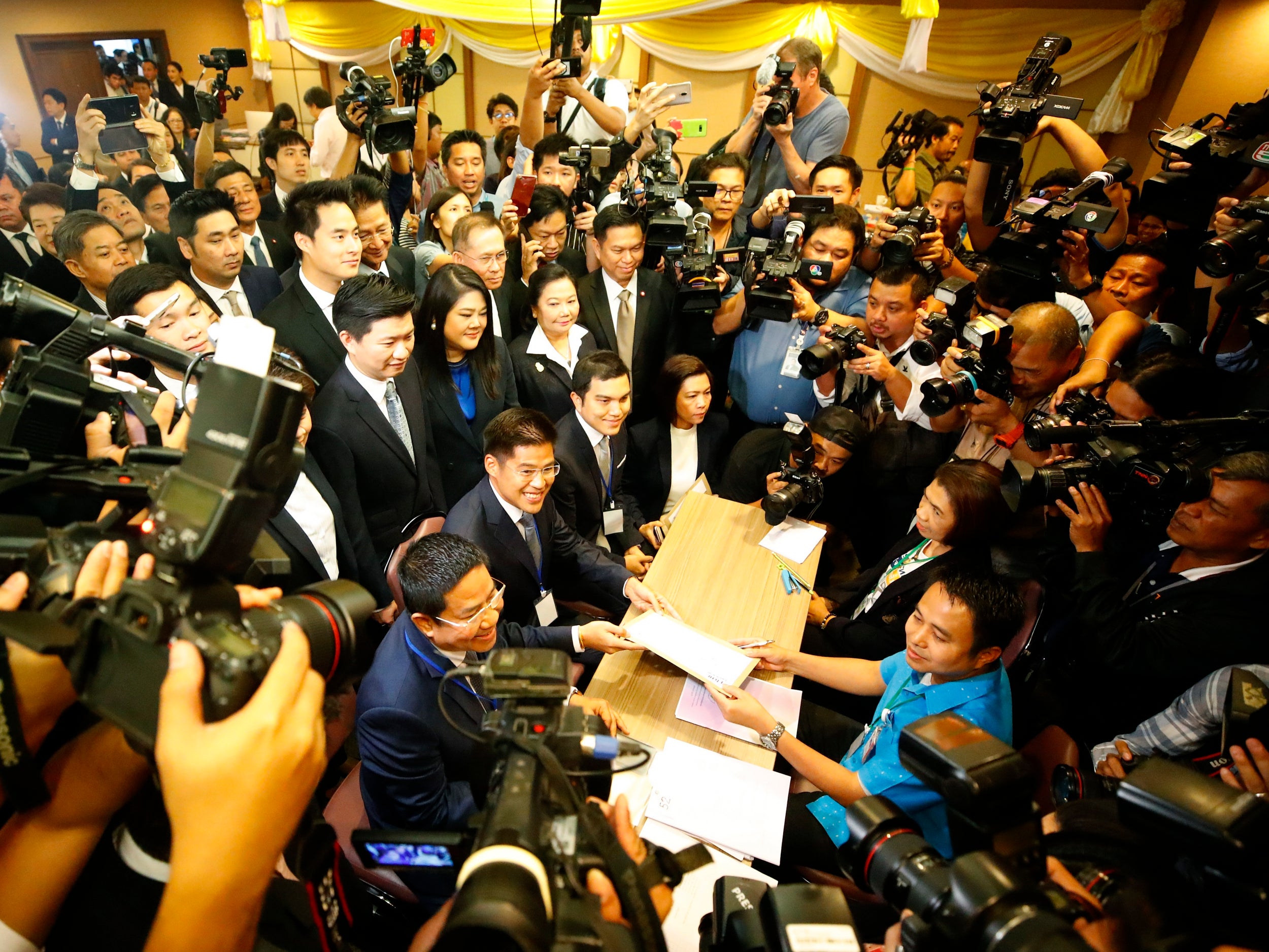Thailand’s Princess Ubolratana: Just another election candidate?
Analysis: She insists she can run for office just like any other citizen. But as first child of King Bhumibol himself, Ubolratana cannot pretend her candidacy is anything other than extraordinary

In confirming her candidacy to be Thailand’s next prime minister, Princess Ubolratana Mahidol said she wanted to show she is “without any privileges above other fellow Thai citizens”.
That’s not strictly the case. For while Ubolratana renounced her royal titles more than 40 years ago to marry an American and move to the US, she is still the eldest child of the nationally revered late King Bhumibol.
The decision of the populist Thai Raksa Chart Party to nominate her as its candidate for the premiership has brought Thailand into uncharted territory and thrown the race for next month’s general election on its head.
The 67-year-old princess returned to Thailand in 2001 after her divorce and took up charity work, public appearances and had a minor film career. She has been treated since then, by officials and the public alike, as a de facto royal.
Thailand operates under a constitutional monarchy, much like the UK, with the king or queen as head of state rising above the fray of party politics.
Minor royals have held positions in government before, but never in the modern era has a close member of the Chakri dynasty run for office.
It raises the serious question of how other political parties can campaign against a representative of Thailand’s most revered and important institution.
Under lèse-majesté laws, it is a criminal offence to insult the monarchy or in any way jeopardise the reputation of the king or queen.
Since she gave up her claim to royalty, Ubolratana is not technically covered under lèse-majesté, said Anon Chawalawan, an officer with the Thai NGO iLaw which works to promote freedom of expression and public engagement in politics.
Nonetheless, until very recently it would still have been socially unacceptable to criticise her in any meaningful way.
It’s possible that her entry into politics could change that. Even people who identify themselves as staunch royalists have quite forcefully objected online to her throwing her hat in with a party with close ties to the former prime minister Thaksin Shinawatra. Thaksin was accused of being ambivalent towards the monarchy during his one-and-a-half terms in office, something he denied.
Funeral of Thailand King Bhumibol Adulyadej: in pictures
Show all 21Ultimately, Anon says, it is “too soon” to say what will happen. “Thai politics is very complicated right now – it is difficult to predict. No one would have said this move [the princess’s candidacy] was ever on the radar.”
And whether she will be allowed to run at all remains to be seen. Late on Friday, the king – Ubolratana’s brother – issued a public order condemning her candidacy as “inappropriate”, saying she still retained some royal standing. The Thai election commission must decide whether it will allow her to be a candidate by next Friday
The princess is clearly not just another candidate, whatever she may claim. There is even a degree of uncertainty over whether she will deign to campaign on the street on behalf of her party.
But then, her main rival for the premiership is himself an exceptional figure. Until Friday’s announcement, by far the most likely next leader was the current prime minister himself, Prayuth Chan-ocha.
A retired general, Prayuth led the 2014 coup against the government of Thaksin Shinawatra’s sister, Yingluck, and has taken a number of steps since to ensure that, when democracy is restored to Thailand in March, the military will keep a firm grip on the levers of power.
Like Ubolratana, Prayuth is also not a member of the political organisation which has nominated him for prime minister – the Phalang Pracharat Party, widely considered a proxy for the military.
And like her, the general is protected by an aura of untouchability after four years when criticism of the junta was severely and unceremoniously quashed.
It has been an extraordinary day for Thai politics, completely redrawing the battle lines just six weeks before the general election with the Bangkok establishment, military and Prayuth on one side and Thaksin, rural voters and now – it would seem – the royals on the other. What’s not known is whether this will bring a new era of stability to the nation – or yet more years of chaos.
Subscribe to Independent Premium to bookmark this article
Want to bookmark your favourite articles and stories to read or reference later? Start your Independent Premium subscription today.

Join our commenting forum
Join thought-provoking conversations, follow other Independent readers and see their replies